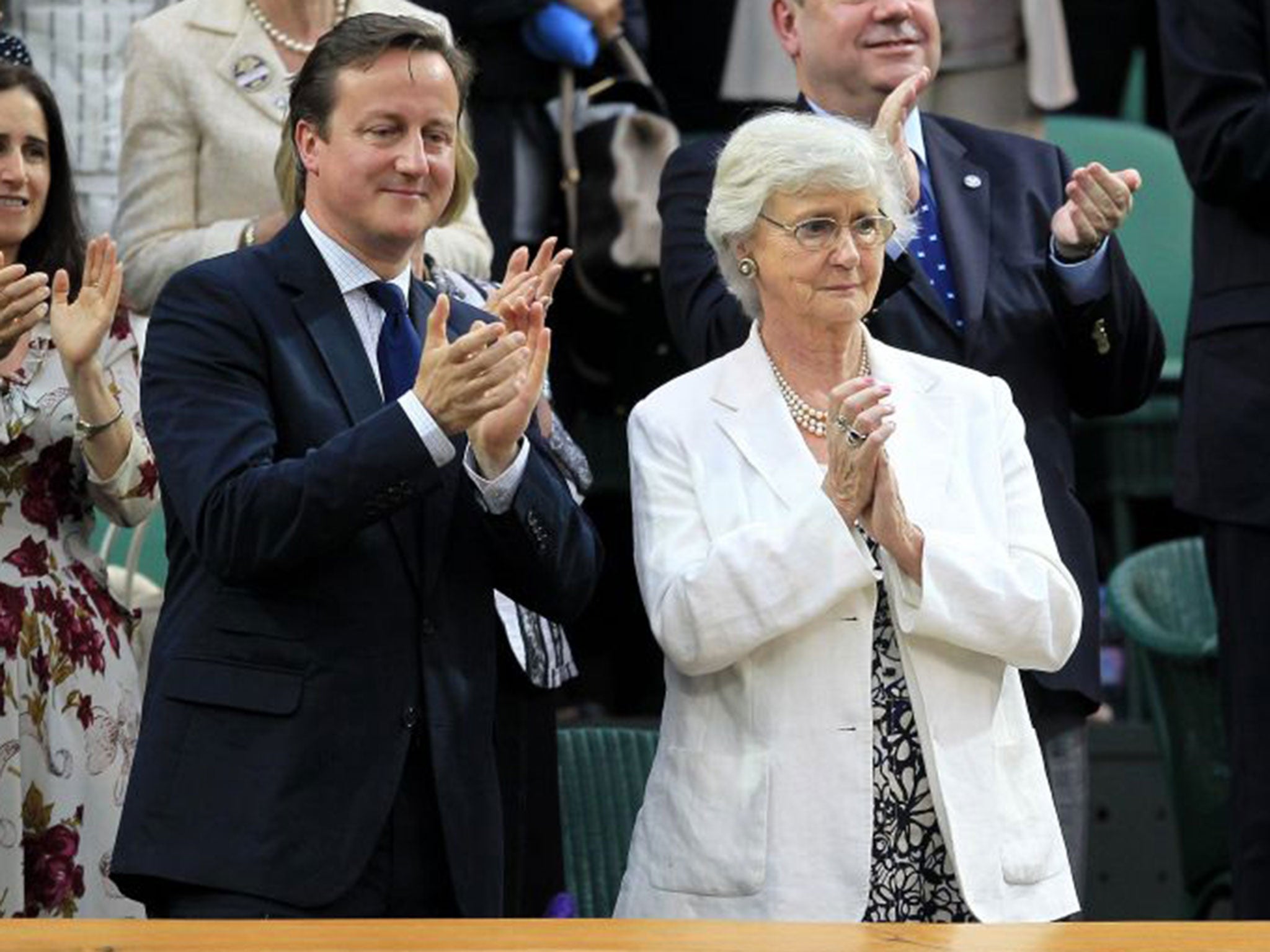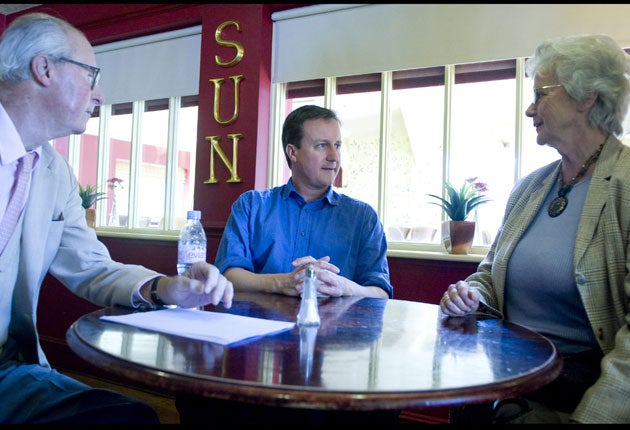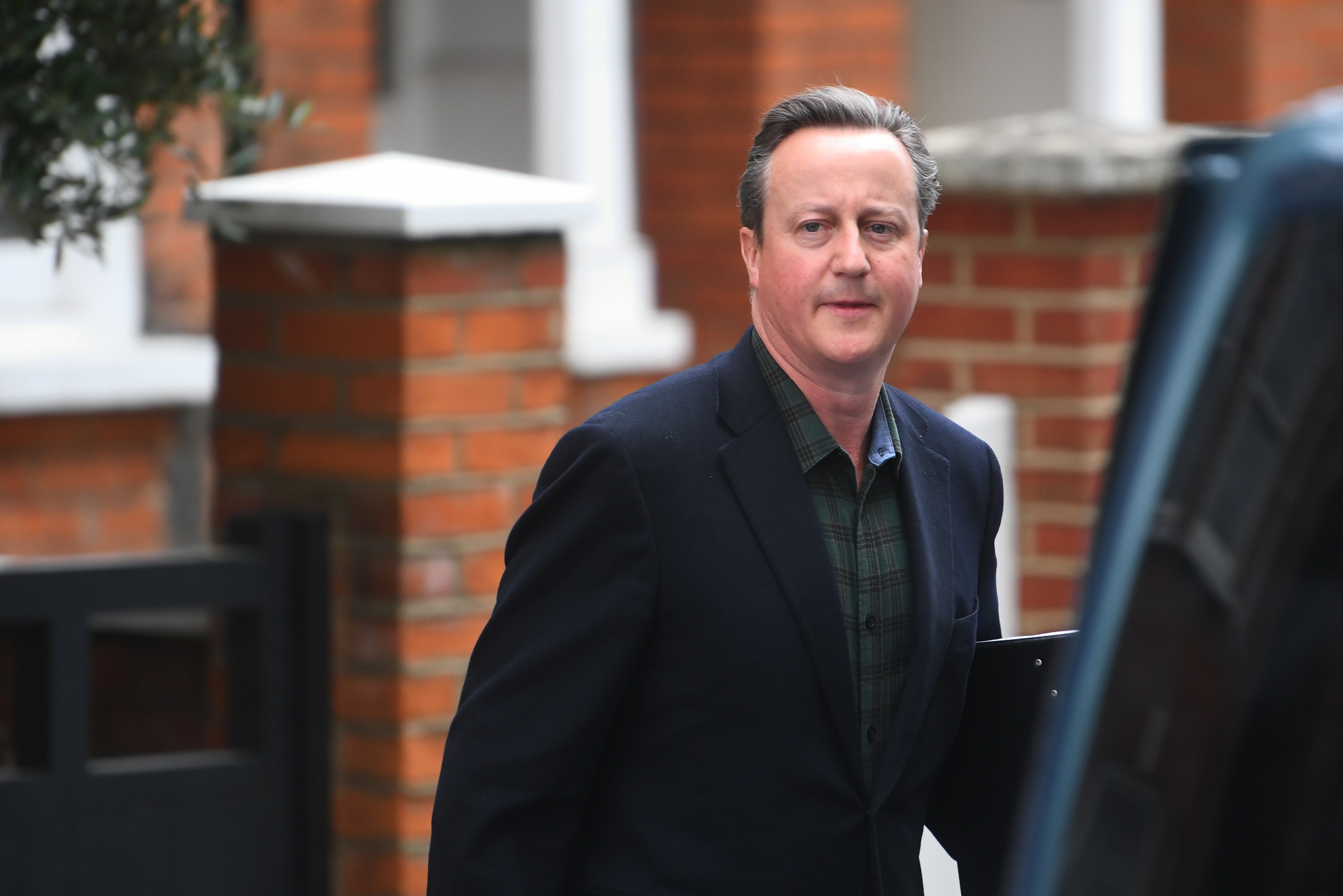David Cameron opens up about his mother’s battle with ‘terrible disease’ dementia
The former Prime Minister’s mother, Mary Cameron, is in the early stages of the degenerative disease.

Your support helps us to tell the story
From reproductive rights to climate change to Big Tech, The Independent is on the ground when the story is developing. Whether it's investigating the financials of Elon Musk's pro-Trump PAC or producing our latest documentary, 'The A Word', which shines a light on the American women fighting for reproductive rights, we know how important it is to parse out the facts from the messaging.
At such a critical moment in US history, we need reporters on the ground. Your donation allows us to keep sending journalists to speak to both sides of the story.
The Independent is trusted by Americans across the entire political spectrum. And unlike many other quality news outlets, we choose not to lock Americans out of our reporting and analysis with paywalls. We believe quality journalism should be available to everyone, paid for by those who can afford it.
Your support makes all the difference.David Cameron has opened up about his mother’s battle with dementia.
The former Prime Minister said his mother, 87-year-old Mary Cameron, is “doing OK” amidst her early diagnosis and is being supported by her four children.
Mr Cameron is president of the Alzheimer’s Research UK charity, founder of the U.K. Dementia Research Institute and is a long-time advocate for funding more research into the illness.
He said his mother is in the early stages of the “terrible disease” and it has taught him about the realities of living with dementia.
“Not only is it a terrible disease in its later stages, but of course in the early stages it’s immensely frustrating when you can’t remember things and you worry about being forgetful,” he told The Times.
“It’s a cause of stress and depression as well as being a terrible thing in itself. So seeing it first-hand, it teaches you a lot about the very human side of it.”
Speaking to LBC, the former PM said his mother is getting “frustrated” at her poorer memory, which is one of the key symptoms of Alzheimer’s.

“Alzheimer’s can accelerate very quickly, and suddenly you can’t remember your relatives, your friends, and what you’re doing. That’s why it is such a tragic disease,” he said.
But, he insisted his family and friends are supporting his mother through her journey.
“Luckily, we are a very strong, close-knit family. I’m one of four siblings and so we all try and do our bit and help,” he said.
“She’s also got lots of friends who have been amazing and drop in and see her all the time.”
He said his mother’s diagnosis has made the issue of Alzheimer’s funding even more prevalent than in 2012, when the then-PM launched a national campaign to tackle dementia and pledged to double spending into research.
“At the time, I didn’t have a family interest,” Mr Cameron said. “Subsequently the political has become more personal.”
He said funding more research into Alzheimer’s in necessary to help the almost one million people with the disease in Britain.
“At the moment we are finding out so late that it’s almost like treating the cancer when the tumour is the size of a tennis ball,” he said. “Well that’s hopeless, you’ve got to get there earlier.”
“We need an all-out fightback against this disease. We did it with cancer in the seventies, with HIV in the eighties and nineties. Now we’ve got to do the same with dementia.”

Alzheimer’s disease is the most common type of dementia in the UK.
Dementia is the name for the syndrome associated with an ongoing decline of brain functioning. It can affect memory, thinking skills and other mental abilities and is more common amongst older people.
As the number of older people in Britain rises, this increases the amount of people vulnerable to developing dementia.
Ten years ago, when Mr Cameron launched his campaign to help find a cure for the disease, there were less than 800,000 people living with dementia in the UK.
Now, that has risen to almost a million people.



Join our commenting forum
Join thought-provoking conversations, follow other Independent readers and see their replies
Comments